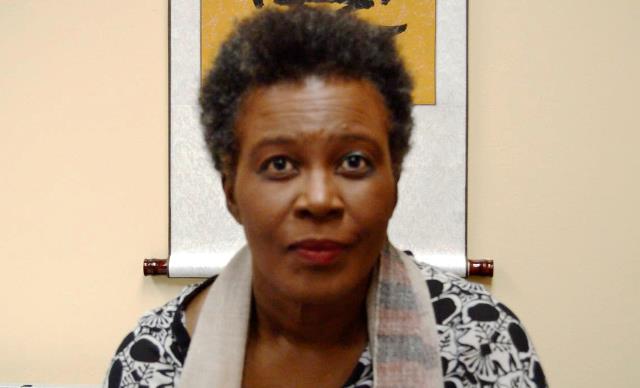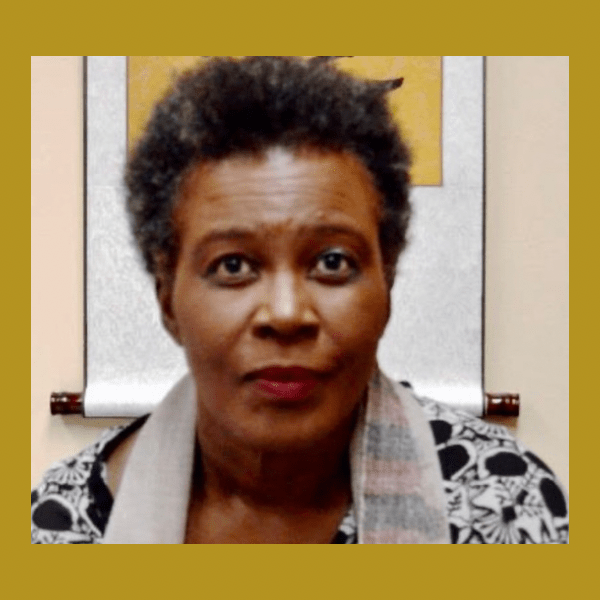Claudia Rankine. Jamaica 1963. Poeta, Dramaturgo y Docente. Creció y vivió en Kingston, Jamaica y en Nueva York. Su trabajo que fusiona Poesía, Prosa y Segmentos televisivos ha sido muy celebrado. Su libro Ciudadano; Citizen, 2014, le ha valido varios reconocimientos. Los activistas por los Derechos Humanos, exhiben sus versos en franelas y pancartas.
Claudia Rankine: “Hay billones de almas en el mundo y algunos de nosotros estamos al borde del contacto con las profundidades de cómo es y qué es eso de ser un humano. Superficialmente existimos, pero la existencia queda algo más allá. Escribo para articular ese sentimiento de la experiencia. Mi primer libro de poemas, Nothing in Nature is Private (Nada en la naturaleza es privado), existe en la experiencia de Negra, Jamaiquina, persona, mujer en un mundo lacerado (…) A veces creo que soy muy privada, muy solitaria de corazón, pero mi mente rema constantemente como si estuviera en medio de una tormenta pública. Cuando el poeta Paul Celan escribe “Ora Señor, ora por nosotros, estamos cerca,” siento que habla de mí y yo con él rogándole a Dios. Algunos de nosotros estamos remendando nuestros corazones constantemente, yo escribo en ese remiendo. En cualquier caso, aquí estoy, Claudia Rankine, nacida en Jamaica, en 1963, aquí está mi arte.”

SEGMENTOS DE SU LIBRO CITIZEN
Cuando llegas a la entrada de tu casa y apagas el auto, te quedas tras el volante otros diez minutos. Temes que la noche se esté cerrando y codificando a nivel de la células y necesita tiempo para funcionar como un lavado a presión. Sentada allí contemplando la puerta del garaje cerrada te acuerdas una vez que un amigo te dijo que existía un término médico – John Henryism – para personas que han sufrido stress causado por el racismo. Logran morirse eludiendo la acumulación de olvido. Sherman James, el científico que acuñó el término, afirmaba que el costo fisiológico era elevado. Esperas que al sentarte en silencio lucharás contra la tendencia.
/
Cuando el desconocido te preguntó, #A tí que te importa? Tú simplemente te quedaste ahí mirándolo. Él acababa de llamar niggers a los adolescentes bulliciosos en Starbucks. Mira, yo estoy aquí, respondiste, sin necesariamente esperar que volteara a mirarte. Él tiene una vaso de cartón con tapa en una mano, y en la otra una pequeña bolsa de papel. Sólo están comportándose como niños. A ver, no es necesario llamar al KKK, dijiste.
Ah, bueno, ahí vas! Te respondió.
La gente a tu alrededor levantó la cabeza de sus pantallas. Los adolescentes se han calmado. #Ahí voy? Preguntas. Sintiendo como te llenabas de cólera. Sí, y algo sobre escucharte a ti misma repitiendo la acusación del desconocido en una voz que usualmente guardas para tu compañero, te hace sonreír.
/
Un hombre derriba a su hijo en el metro. Sientes tu propio cuerpo doblarse de dolor. Él está bien, pero el hijo de perra sigue caminando como si nada. Ella cuenta que agarró al desconocido por el brazo y le dijo que se disculpara: Le dije que mirara al niño y se disculpara. Y sí, tú quieres que eso no vuelva a suceder, tú quieres que el niño negro tirado al piso sea visto, que lo ayuden a levantarse y a reponerse, no ignorado por la persona que no lo vio, que nunca lo ha visto y tal vez nunca ha visto a nadie que no sea una reflexión de sí mismo.
Lo más hermoso de todo es que un grupo de hombres comenzaron a respaldarme como un bloque de guardaespaldas, ella cuenta, como tíos y hermanos recién encontrados.
Traducción: Carolina Iribarren.
****************
When you arrive in your driveway and turn off the car, you remain behind the wheel another ten minutes. You fear the night is being locked in and coded on a cellular level and want time to function as a power wash. Sitting there staring at the closed garage door you are reminded that a friend once told you there exists a medical term — John Henryism — for people exposed to stresses stemming from racism. They achieve themselves to death trying to dodge the build up of erasure. Sherman James, the researcher who came up with the term, claimed the physiological costs were high. You hope by sitting in silence you are bucking the trend.
/
When the stranger asks, Why do you care? you just stand there staring at him. He has just referred to the boisterous teenagers in Starbucks as niggers. Hey, I am standing right here, you responded, not necessarily expecting him to turn to you.
He is holding the lidded paper cup in one hand and a small paper bag in the other. They are just being kids. Come on, no need to get all KKK on them, you say.
Now there you go, he responds.
The people around you have turned away from their screens. The teenagers are on pause. There I go? you ask, feeling irritation begin to rain down. Yes, and something about hearing yourself repeating this stranger’s accusation in a voice usually reserved for your partner makes you smile.
/
A man knocked over her son in the subway. You feel your own body wince. He’s okay, but the son of a bitch kept walking. She says she grabbed the stranger’s arm and told him to apologize: I told him to look at the boy and apologize. And yes, you want it to stop, you want the black child pushed to the ground to be seen, to be helped to his feet and be brushed off, not brushed off by the person that did not see him, has never seen him, has perhaps never seen anyone who is not a reflection of himself.
The beautiful thing is that a group of men began to stand behind me like a fleet of bodyguards, she says, like newly found uncles and brothers.


